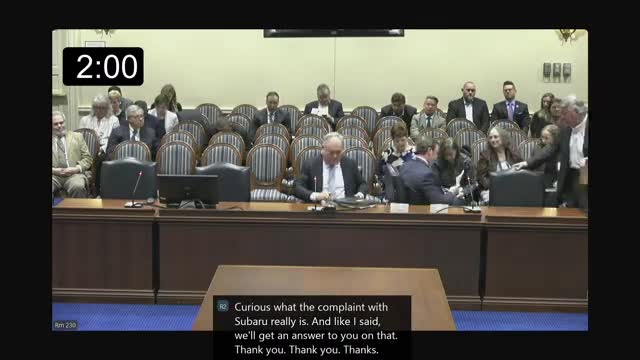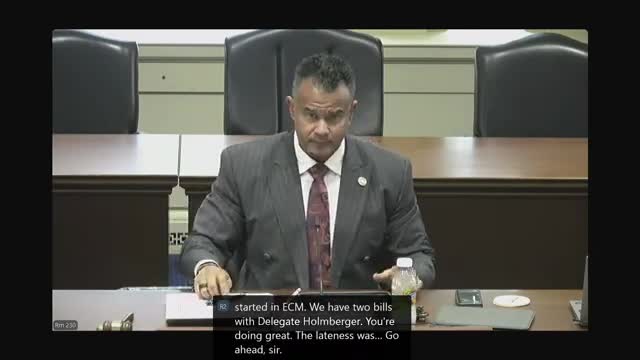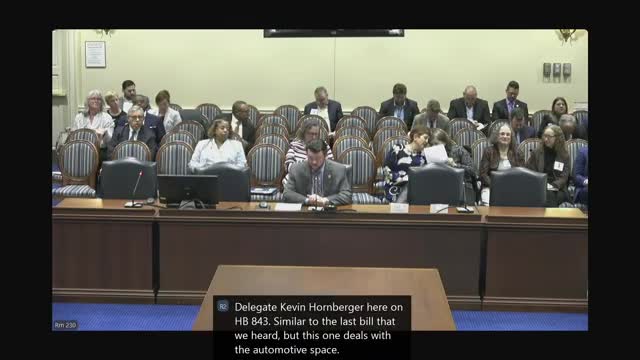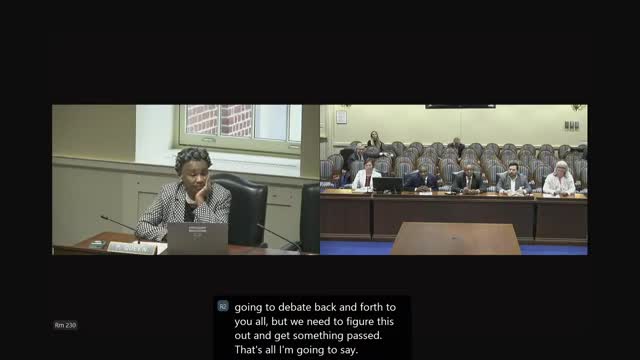Article not found
This article is no longer available. But don't worry—we've gathered other articles that discuss the same topic.

Delegate Linda Foley proposes phased state ban and sale prohibition on gas leaf blowers in HB 701

Delegate Hornberger renews push for 'right to repair' tractors in Maryland hearing on HB 842

Automotive industry, repair shops clash in Economic Matters hearing over HB 843 right-to-repair bill

